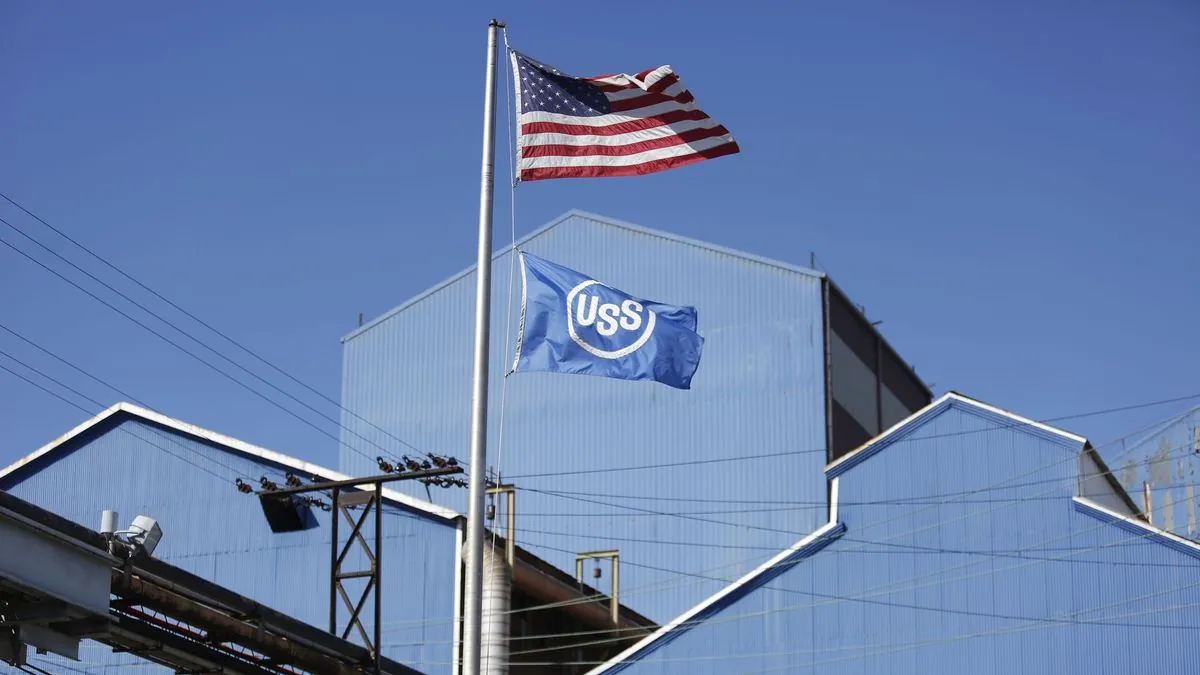Biden Administration Poised to Block Nippon Steel's $14.9B U.S. Steel Takeover
The U.S. government is likely to reject Nippon Steel's acquisition of U.S. Steel, citing national security concerns. This decision impacts Nippon's global expansion strategy amid industry challenges.

The Biden administration appears set to obstruct Nippon Steel's $14.9 billion acquisition of United States Steel, according to a recent Reuters exclusive. This development could significantly impact the Japanese steel giant's global expansion strategy.
The Committee on Foreign Investment in the United States (CFIUS), established in 1975, has expressed concerns that the deal could potentially harm American steel production. This stance aligns with previous opposition voiced by U.S. presidential candidates Kamala Harris and Donald Trump.
Nippon Steel, currently the world's fourth-largest steel producer by volume, faces numerous challenges in its domestic market. Japanese production constitutes the majority of its 66 million tons annual steelmaking capacity. However, with a shrinking domestic market, CEO Eiji Hashimoto has been compelled to seek opportunities abroad.
The acquisition of U.S. Steel, founded in 1901 by J.P. Morgan and Elbert Gary, would have provided Nippon Steel with an additional 20 million tons of annual capacity in a market with strong demand for high-grade steel. Moreover, the 25% tariffs imposed on steel imports in 2018 have bolstered profits in the U.S. market.

The global steel industry, which contributes about 2% of global CO2 emissions, is grappling with significant challenges. China, the world's largest steel producer accounting for over 50% of global production, is experiencing a property slump that has reduced demand. This has led to overcapacity and a 24% increase in Chinese exports in the first half of 2024, totaling 54 million tons.
In response to these industry pressures, Nippon Steel had publicly pledged to prioritize American-made metal for U.S. buyers and to appoint a majority of U.S. citizens to its new subsidiary's board. However, these assurances appear insufficient to allay CFIUS concerns.
If the U.S. government blocks the deal, Nippon Steel will need to explore alternative strategies to achieve its goals of 100 billion yen ($700 million) in annual underlying profit and 100 million tons of yearly capacity. One potential option is to expand its joint venture with ArcelorMittal, the world's largest steel company by production capacity, to build up to 30 million tons of annual capacity in India.
While this alternative may take longer to implement, it could prove more financially prudent for Nippon Steel shareholders. The proposed U.S. Steel acquisition came with a substantial 140% premium, potentially capping the return on investment at around 5%, close to Nippon's cost of capital.
The steel industry, which employs about 140,000 people in the U.S. as of 2024, has long been a significant factor in international trade disputes. As the global steel market, valued at approximately $1.2 trillion in 2023, continues to evolve, companies like Nippon Steel must navigate complex geopolitical and economic landscapes to secure their future in this crucial sector.
"We remain committed to prioritizing American-made metal for U.S. buyers and ensuring a majority of U.S. citizens on our new subsidiary's board."
As the September 4, 2024 deadline for the companies to respond to the Biden administration's concerns has passed, the steel industry awaits the final decision that could reshape the global steel landscape.


































